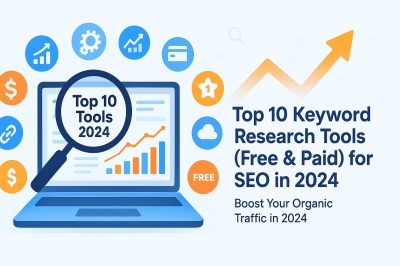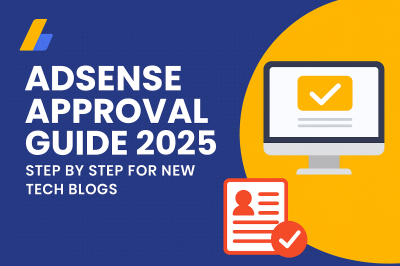
Keyword research is the foundation of successful SEO—without the right keywords, even the most valuable content can remain invisible in search results. Whether you’re a blogger, digital marketer, or business owner, using the top 10 keyword research tools can help you uncover high-potential keywords that drive targeted organic traffic.
In this comprehensive 1500-word guide, we’ll analyze and compare the best free and paid keyword research tools available in 2024. We’ll examine Google’s Keyword Planner, Semrush, Ahrefs, and emerging AI-powered solutions, providing detailed insights to help you choose the perfect tool for your needs and budget.
Why Keyword Research is Critical for SEO Success
Before exploring specific tools, let’s understand why keyword research deserves your attention:
✅ Matches User Intent – Helps you create content that answers real search queries
✅ Identifies Traffic Opportunities – Reveals high-volume, low-competition keywords
✅ Improves Content Strategy – Guides topic selection based on actual search demand
✅ Provides Competitive Intelligence – Shows what keywords your competitors rank for
✅ Maximizes ROI – Ensures you’re targeting keywords that can actually drive conversions
Common Keyword Research Mistakes to Avoid
Focusing Only on Search Volume – High-volume keywords often have intense competition
Ignoring Long-Tail Keywords – These often convert better and are easier to rank for
Overlooking Local SEO Keywords – Crucial for brick-and-mortar businesses
Not Analyzing Competitor Keywords – Missing opportunities competitors are already exploiting
Failing to Update Keyword Strategies – Search trends evolve constantly
Essential Features of Top Keyword Research Tools
The best keyword tools offer these critical capabilities:
✅ Accurate Search Volume Data – Prioritize keywords with actual traffic potential
✅ Keyword Difficulty Scores – Identify realistically rankable opportunities
✅ Long-Tail Keyword Suggestions – Uncover valuable niche phrases
✅ Competitor Analysis – Reveal competitors’ keyword strategies
✅ Search Intent Classification – Distinguish informational vs. commercial queries
✅ Historical Data – Track keyword performance over time
✅ Integration Capabilities – Works with other SEO tools in your stack
Best Free Keyword Research Tools
1. Google Keyword Planner
Best for: Basic keyword ideas (PPC & SEO)
Pricing: Free (requires Google Ads account)
Key Features:
Search volume and trends data
Bid estimates for Google Ads
Location and language filters
Competition level indicators
Pros & Cons:
| ✅ Advantages | ❌ Limitations |
|---|---|
| Most accurate data directly from Google | Requires Google Ads account for full features |
| Completely free to use | Lacks keyword difficulty scoring |
| Excellent for PPC campaign research | Interface isn’t SEO-focused |
Ideal For: Beginners and small businesses needing reliable, free keyword data.
Pro Tip: Combine with Google Trends to validate seasonal keyword popularity.
2. Ubersuggest (by Neil Patel)
Best for: Beginners & content marketers
Pricing: Free (limited searches), Paid from $29/month
Key Features:
Keyword difficulty and CPC data
Content ideas based on top-ranking pages
Competitor domain analysis
Backlink data
Pros & Cons:
| ✅ Advantages | ❌ Limitations |
|---|---|
| Generous free plan available | Limited daily searches on free version |
| Very beginner-friendly interface | Smaller database than premium tools |
| Provides content gap analysis |
Success Story: A food blogger increased organic traffic by 68% in 4 months using Ubersuggest’s long-tail keyword suggestions.
3. AnswerThePublic
Best for: Question-based keyword research
Pricing: Free (limited), Paid from $99/month
Key Features:
Visual “question cloud” for keywords
Prepositions & comparisons (e.g., “vs”)
Language and location filters
CSV export capability
Pros & Cons:
| ✅ Advantages | ❌ Limitations |
|---|---|
| Unique question-based keyword discovery | Free version has strict search limits |
| Excellent for FAQ-style content | Less useful for commercial keywords |
| Great for voice search optimization |
Ideal For: Content marketers creating comprehensive guide posts.
Best Paid Keyword Research Tools
4. Semrush
Best for: All-in-one SEO professionals
Pricing: Starts at $129.95/month
Key Features:
Database of 20+ billion keywords
Position tracking and backlink analysis
Content Optimization Tool
Keyword gap analysis
Pros & Cons:
| ✅ Advantages | ❌ Limitations |
|---|---|
| Most comprehensive SEO toolkit available | Premium pricing |
| Extremely accurate keyword data | Steep learning curve |
| Tracks daily ranking changes |
Case Study: An e-commerce site grew organic revenue by 153% using Semrush’s keyword gap analysis.
5. Ahrefs
Best for: Backlink analysis + keyword research
Pricing: Starts at $99/month
Key Features:
12 trillion+ backlink index
Content Explorer for viral topics
Detailed rank tracking
Comprehensive site audits
Pros & Cons:
| ✅ Advantages | ❌ Limitations |
|---|---|
| Industry-leading backlink data | Slightly higher pricing |
| Excellent competitor analysis | Fewer features than Semrush |
| Accurate keyword difficulty scores |
Ideal For: SEO agencies and competitive niches.
Comparison Table: Free vs. Paid Tools
| Tool | Free Option | Best For | Starting Price |
|---|---|---|---|
| Google Keyword Planner | Yes | Basic keyword data | Free |
| Ubersuggest | Limited free | Beginners | $29/month |
| Semrush | No | Advanced SEO | $129.95/month |
| Ahrefs | No | Competitor analysis | $99/month |
| KWFinder | No | Long-tail keywords | $49/month |
How to Choose the Right Keyword Tool?
Consider these factors when selecting:
Your Budget – Start free, upgrade as you grow
Skill Level – Beginners need simpler interfaces
Niche Requirements – Local businesses need different features than e-commerce
Team Size – Agencies need collaboration features
Integration Needs – Should work with your existing tools
Recommendations:
Solopreneurs: Ubersuggest or KWFinder
Small Businesses: Semrush or Ahrefs
Enterprises: Semrush Enterprise
Emerging Trends in Keyword Research
AI-Powered Tools – SurferSEO, Frase.io
Voice Search Optimization – More conversational queries
Visual Search Keywords – Important for e-commerce
Zero-Click Search Impact – Optimizing for featured snippets
FAQ Section
1. What’s the most accurate keyword tool?
Semrush and Ahrefs provide the most reliable data, but Google Keyword Planner offers the most accurate search volume.
2. Can I do keyword research without paid tools?
Yes, using Google Keyword Planner, Ubersuggest’s free plan, and AnswerThePublic can yield good results.
3. How often should I update my keyword research?
Re-evaluate your core keywords quarterly and refresh content annually.
Final Recommendations
For comprehensive SEO: Semrush
For backlink-focused research: Ahrefs
For beginners: Ubersuggest
For free option: Google Keyword Planner
Pro Tip: Start with free tools to learn the basics, then invest in paid solutions as your needs grow.
Next Steps for Your SEO Strategy
Choose a tool from our recommendations
Identify 5-10 high-potential keywords
Create optimized content targeting those keywords
Track rankings and refine your approach
Need help implementing? Bookmark this guide or share it with your team for reference!






Leave a Reply